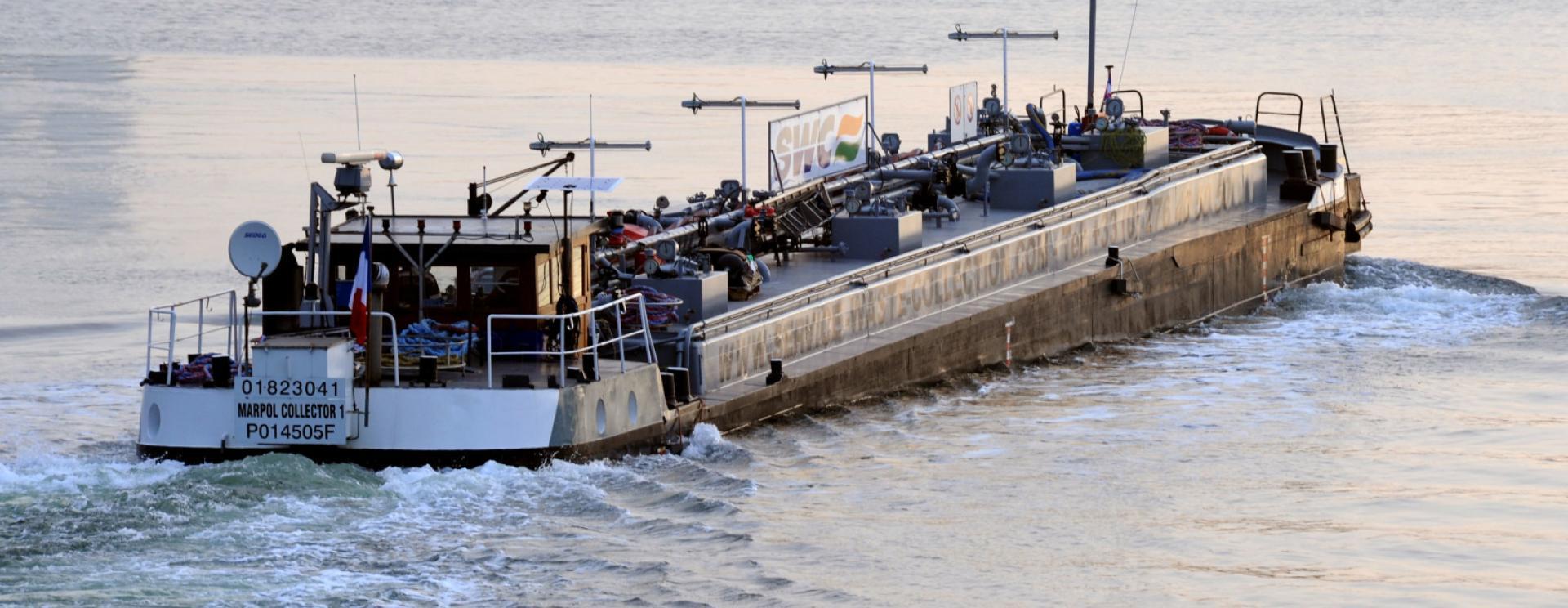- ABOUT US
- CARGO
- PASSENGERS
- MULTIMODALITY
- ECOLOGICAL TRANSITION
- INNOVATION

Collecting, processing and managing marine waste
Published on - Updated
Dedicated waste management services
- Formal approval of service providers for:
- Collection of waste relating to ship upkeep and human activities.
- Waste transportation to recycling facilities.
- Self-propelled collection barges:
- Cargo residues (Marpol 1) and waste from ship operations.
- Barge with 480 sq. m. capacity.
- Collection during time already taken up by the ship’s commercial operations.
- Transportation of household waste and bulky waste items in containers and transportation of WEEE (Waste Electrical and Electronic Equipment).
- Development of a network of floating waste management facilities.
- Prioritisation of river transportation for Seine Axis waste: +30%.
Technology-related services
- A management plan for the processing of waste and residue.
- Assistance of declarants from initial declaration prior to arrival in port and up to the issuance of the certificate of deposit by ECOPORT.
- ECOPORT, a software program implemented by the Harbourmaster’s Office:
- Connected to the EASYPORT one-stop-shop.
- Centralisation and control of waste declarations.
- Monitoring and optimisation of the collection process.
- Management of exemptions from payment of ship port dues.
- Incentivised waste and residues deposition with facilitation during port calls.
Prevention, biodiversity and eco-responsibility
- A systematic industrial, ecological and risk prevention approach (PPRT) adopted by HAROPA PORT with respect to its customers.
- HAROPA PORT is connected to Safe Sea Net, a European maritime platform for communication and combating accidents at sea and marine pollution.
- HAROPA PORT takes the recommendations of the international MARPOL convention into consideration.
- Substantial efforts are made to maintain biodiversity.
- Annual soil and groundwater pollution diagnostic testing.
- Implementation of an EMS (Environmental Management System).